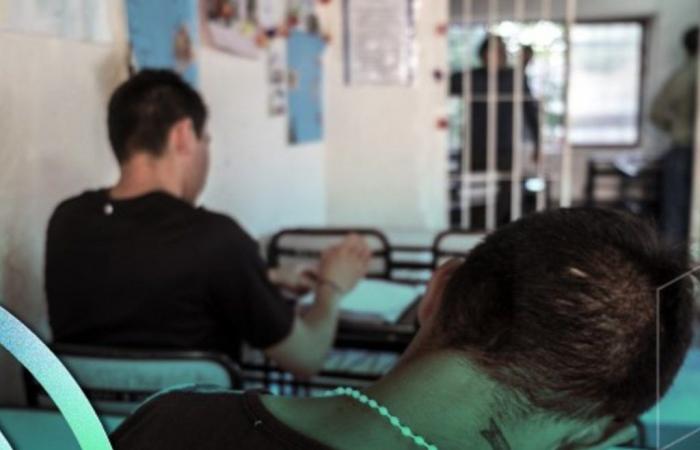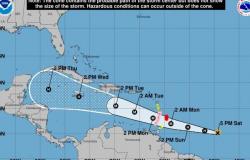
The Minister of National Security, Patricia Bullrich, presented this Friday the “Juvenile Criminal Regime” bill. It is the reform that the Libertarian Government will send “in these days” to Congress to lower the imputability of minors to 13 years, which today begins at 16.
Those three years less from which it is proposed to be able to judge and deprive of liberty of adolescents who commit a crime is cause of social debate every time criminals with ages that are older participate in acts of insecurity. hurts listen, and victims and relatives who demand justice.
But now politics has made its position official. Neither from the age of 14 nor from the age of 15, as had been reported, the Government wants to charge minors from the age of 13.
In a topic this hot, context allows opinions to be tempered. Clarion consulted experts from both sides of the project to understand what is really happening today with those under 16 who commit crimes and what would change with this reform.
“Nowadays, when non-imputability is declared, as in the case of the Rosario beach boy murdered by a 15-year-old boy, the direct judge closes the case. With this project, an environmental, psychological, interdisciplinary report must be made, to see if an unaccountable person, that is, a minor under 13 years of age, is not in danger. Not doing so, as happens now, is abandoning someone who is not punishable but could be at risk or be a risk to others,” he explains to Clarion Fernando Soto, National Director of Regulations and Judicial Liaison, who participated in drafting the text.
Mariano Cúneo Libarona and Patricia Bullrich in the announcement of the project to lower the age of imputability.
In adolescents from 13 years old, who the project considers punishable, it would be a very different regime from what has been done until now from the age of 16. Everything It will depend on the crime, the victims and the perpetrator..
“If there is no serious damage or serious injuries, the prosecutor, the judge, the supervisor (a control figure that is included in the project), could even exempt him from punishment, and apply control measures. It is not automatically jail or freedom“We’ll see if it’s more important to put him in jail or let him go,” he explains.
From the other legal point of view, opponents of lowering the age of punishment to 13 years mark a contradiction with what is required by the International Committee on the Rights of the Child, which controls compliance with the Convention on the Rights of the Child.
“It is the most ratified international treaty in the history of the world and was incorporated into our constitutional system as supreme law (arts. 75 inc. 22 and 31),” he explains. Clarion Rodrigo Morabito, judge of the Juvenile Criminal Responsibility Chamber of Catamarca.
What would be the contradiction? And why is there debate about whether it is correct ‘from’ the age of 13?
“In 2019, that body issued General Observation No. 24 regarding the rights of the child in the juvenile justice system, to point out that ‘the evidence documented in Child Development and Neuroscience indicates that maturity and abstract thinking are still evolving from ages 12 to 13“because the front part of their cerebral cortex is still developing,” he explains.
Therefore, for Morabito, who is also a member of the Unicef network of judges, it is written law and constitutional that “it is unlikely that at those ages understand the consequences of their actions or that they understand criminal procedures. And they are also affected by their entry into adolescence.”
Is adolescence considered an extenuating circumstance today? The same Committee, in another general observation but from 2016, highlights that “it is a unique defining stage of human development characterized by rapid development of the brain, which affects risk taking and the ability to control impulses.”
That is why they encourage States parties to “take note of the latest scientific discoveries” and to “raise the age of criminal responsibility in their countries to at least 14 years or, for example, to 15 or 16.”
“In addition,” says the judge, “scientific evidence indicates that brains continue to mature even beyond adolescence, which affects certain types of decision-making.”
According to Unicef data reviewed by Morabito, in the country 8.5 million children are below the poverty line.
“Although not all of these children commit crimes, they can do so and potentially relapse into transgressive behavior. Even more so when in the country two out of three girls and boys (66%) are poor due to income or are deprived of basic rights, such as access to education, social protection, adequate housing or a bathroom, and water,” she continues.
How the measure can impact
Another point of debate is how lowering the age at which deprivation of liberty is allowed to 13 years (in special establishments, never with adults, as Bullrich explained) would change the fate of adolescents who could enter the prison. criminal world, or that of potential victims.
“Argentina has ample experience that toughening the penal policy has not improved the quality of life of citizens and has not lowered the crime rates that grow as the population and poverty levels increase. The logic is very simple. So that citizens can live free of violence and crime, we do not have to work on the effects of crime, when there are already victims and perpetrators, that is, late, but on the causes that can potentially generate crime.”
At the same level as the lack of opportunities and access to basic rights, the magistrate includes in these cases the problematic substance use already them mental health problems in boys, girls and adolescents.
In non-punishable adolescents – who today are less than 16 years old – he proposes early interventions, because “almost always, boys and girls who transgress the criminal law begin with some minor transgression and that is where comprehensive protection systems must work hard. of rights, which are part of the Executive Branch and to which very few resources are allocated.”
Bullrich explained that for sentences ranging from 3 to 6 years, they will have “concrete alternatives” and will not be “simply locked up with no way out.” “This is important because the environment of that minor is what leads him to commit crimes again. We have to remove him from that situation so that he does not continue in his criminal career,” he said.
The maximum sentences proposed for serious crimes such as homicide are 20 years.
In the text of the bill, the provinces are invited to adhere to the reform.
“I have been working as a judge in Catamarca’s adolescent criminal justice system for twelve years, and I saw many boys under 16 years of age commit crimes, especially robberies and robberies. To deny it would be illogical and unreasonable. But I did not see a single case of a boy or girl under that age committing a more serious crime (a homicide, for example) and I dare say that in many provinces neither. In large provinces, crimes tend to be more violent,” the judge concludes.





